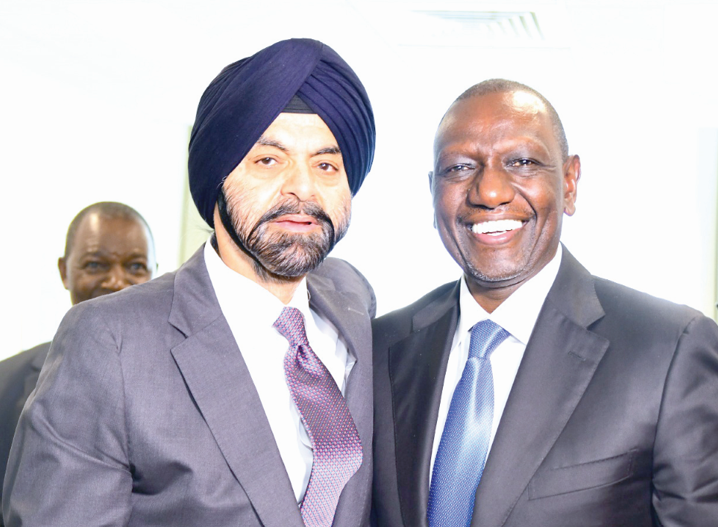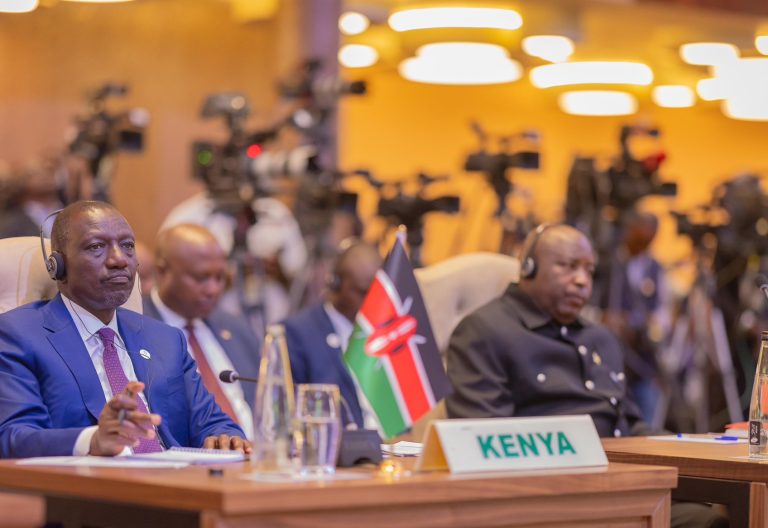Queries over Ruto open arms policy on visa restrictions

Since his enthronement, President William Ruto has signed several Memorandum of Understanding (MoUs) with a number of countries that have seen the removal of visa restrictions for their citizens.
But while Kenya has opened doors for citizens of several countries without the requirement of a visa, Kenyans visiting the same countries are still being subjected to the traditional cumbersome bureaucratic process of seeking visa clearance.
A few countries have so far signed reciprocal agreements to allow Kenyans free entry.
Although experts in international relations are applauding the move by the Kenya Kwanza administration to enter into MoUs to waive visa requirements with several countries, they are urging for caution lest it opens the floodgates for criminals and other undesirable elements.
There is also concern that the move may end up benefiting citizens in other countries who have the resources and exposure to visit Kenya in contrast to Kenyans who may not be in a position to venture out.
“The move is only good if its reciprocal…..allowing free movement of persons on both sides.
But if the MoUs are designed in a way similar to the previous deal with South Africa, where South Africans were allowed to freely enter Kenya, while it was very difficult for Kenyans to enter South Africa, then we need to re-look into them,” Prof Macharia Munene, an expert in international relations warns.
On the other hand, the government is upbeat over President Ruto’s strategy, which it describes as a significant shift in the country’s immigration policy.
“Kenya’s decision to ease visa restrictions enhances its role as a regional leader. By fostering closer ties with neighbouring countries, Kenya can play a more prominent role in regional organisations and diplomacy,” Dr Alfred Mutua, the Cabinet Secretary for Foreign and Diaspora Affairs told the People Daily on Monday.
Free to travel
According to the CS, Kenyans holding all types of passports (diplomatic and ordinary) can travel to at least 45 countries visa free.
This include Senegal, South Africa, Mozambique, Comoros, Uganda, Tanzania, Rwanda, Ethiopia, South Sudan, DRC, Djibouti, Congo Brazaville, Burundi, Ghana, Malawi, Lesotho, Mozambique, Namibia, Gambia, Zambia, Zimbabwe, Eswatini, Mauritius, Eritrea, San Marino, Antigua and Barbuda, Bahamas, Barbados, Benin, Botswana, British Virgin Islands and Cayman Islands. Others are Cuba, Haiti, Hong Kong, Jamaica, Panama, Philippines, Grenada, Trinidad and Tobago, Malaysia and Singapore, among others.
In reciprocation, citizens from 143 countries can be issued with a visa on application or arrival and without reference to the Director of Immigration services provided that they are not prohibited immigrants or inadmissible persons.
Already, President Ruto has given an indication that he is considering abolishing any visa requirement for persons travelling to Kenya.
“We are having a conversation as Kenyans because it is unfair to ask anybody coming home for visas,” Ruto said in May during the African Private Sector Dialogue Conference on Free Trade.
President Ruto told the African delegates that this might be the last time they will pay for visas to visit the country.
“This is home. We wholeheartedly support the AfCFTA and we must remove any impediments to the movement of people around our continent,” he said.
“The new visa policy by Kenya is a strategic move aimed at stimulating economic growth, strengthening diplomatic relations, and positioning Kenya as a regional leader,” Mutua says.
Holders of both diplomatic and ordinary passports from Israel, Tunisia, China, Cuba, Brazil, Iran, Turkey and Sri Lanka enjoy a free entry to Kenya without a visa requirement. Mutua says the removal of the visa requirement streamlines the entry process as well as eliminating the need for travellers from a number of countries to obtain a visa upon entry.
Visa on application
“For countries not included in the visa free list, Kenya has introduced visa on application facilities, making it easier for travellers to enter the country. This change reduces bureaucratic hurdles and encourages spontaneous travel,” the former Machakos governor who is currently accompanying President Ruto to the United National General Assembly meeting in the US told PD in an interview.
“By facilitating easier travel, Kenya is fostering goodwill and promoting collaboration in various sectors including trade, education and technology,” Mutua added.
Experts on international relations say Kenya’s new visa policy is a strategic move aimed at stimulating economic growth, strengthening diplomatic relations, and positioning the country as a regional leader.
“Kenya faces competition from other African nations in attracting tourists. By simplifying the visa process, Kenya aims to gain a competitive edge and position itself as a top tourist destination in the region,” says Mutua. But in concurrence with Mutua, the experts warn that the move carries potential risks, such as security concerns and possible strains on public resources.
According to Machakos Deputy governor Francis Mwangangi, who is currently pursuing his PhD in International Relations at the University of Nairobi, the new policy has drawbacks unless implemented with a lot of caution and strict security measures.
“Though the new policy is going to increase business opportunities and enhance tourism which would lead to employment and wealth creation, it can open gates for money laundering, drug and gun trafficking, and other international criminals to enter into the country,” says Mwangangi.
Mwangangi says the government should as such move fast to establish a special police unit that would be charged with the responsibility of undertaking background checks of all persons entering the country.
“The government must also strictly enforce the existing criminal laws to ensure that all persons involved in crimes such as terrorism, money laundering and fraud are severely punished.
Relaxing on the enforcement of laws could see the country becoming a haven for criminals,” he warns.











